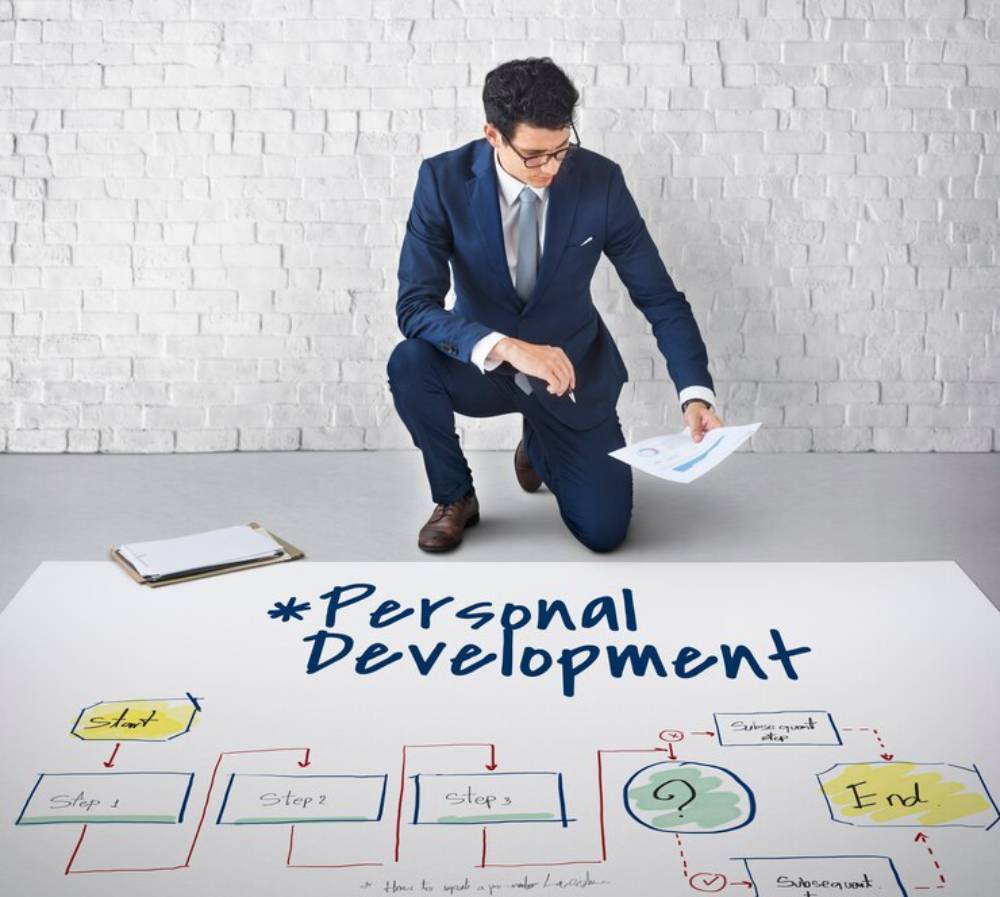
The Lifelong Benefits of Becoming a Polymath
In a world that is constantly evolving, the ability to adapt, learn, and thrive in a range of fields is more important than ever before. Focusing on one field has been the traditional route to success. However, being a polymath—skilled in many areas—has become more popular lately. Becoming a polymath offers lifelong benefits. It boosts your knowledge and aids personal growth. Also, it makes you more creative and can improve your job opportunities.
Being a polymath brings to mind Renaissance icons like Leonardo da Vinci and Benjamin Franklin. They excelled in many fields, including art, engineering, philosophy, and science. However, in today’s world, the term “polymath” doesn’t just apply to historical figures. It applies to anyone who seeks knowledge and expertise across a variety of domains. Being a polymath opens doors in many areas, like technology, arts, business, and humanities. It offers chances for lifelong learning. This can lead to personal growth and professional success.
In this article, we’ll look at the benefits of being a polymath. We’ll see how these skills help personal growth. Plus, we’ll discuss how you can begin developing them today. No matter, if you’re a student, worker, or lifelong learner, knowing about polymathy, can inspire you. It encourages you to expand your horizons and invest in your mind.
What Is a Polymath?
Before diving into the benefits, it’s important to define what a polymath is. Simply put, a polymath is someone who has expertise in multiple areas of study or fields of interest. A specialist dives deep into one subject. In contrast, a polymath connects knowledge from many areas. They look for links between different fields.
Polymaths are not limited to a specific profession or background. Throughout history, figures like Leonardo da Vinci, Albert Einstein, and Ada Lovelace showed polymathy. They excelled in many fields, including art, literature, science, and math. In today’s world, polymaths can explore many fields. They might dive into entrepreneurship, technology, philosophy, and the arts, among others.
Today’s polymaths are diverse, modern individuals. They know the importance of gaining knowledge across many fields, even though the term comes from historical figures. With the rise of self-learning platforms and online resources, anyone can develop polymathic skills in their own life.
The Lifelong Benefits of Becoming a Polymath

1. Enhanced Problem-Solving Skills
One of the greatest advantages of being a polymath is the ability to solve problems from a variety of angles. Gaining knowledge in different areas gives you a wider view. This helps you tackle challenges more creatively.
Why This Matters:
- Cross-disciplinary thinking: Polymaths use cross-disciplinary thinking to solve problems. They take ideas or techniques from one field and apply them to another. This approach often leads to more innovative solutions.
- Increased adaptability: Knowing different subjects helps you adjust when new challenges or market changes arise.
Steve Jobs was famous for mixing arts with technology. He used design principles to enhance how users experience Apple products. His wide interests, like calligraphy and computer science, helped him think beyond typical business and tech limits. This led to some of the most innovative products of the 21st century.
2. Personal Growth and Intellectual Curiosity

Polymathy fosters lifelong learning, a key factor in personal growth. Polymaths don’t stick to one field. Instead, they explore new areas of knowledge and challenge themselves to learn and grow.
Why This Matters:
- Intellectual fulfilment: Continuously learning new things keeps your mind engaged. This can improve cognitive function and delay mental ageing.
- Expanding interests: As you dive into different fields, you may discover new passions, leading to a richer and more fulfilling life.
A polymath’s curiosity makes them ask questions and explore new ideas. This helps them adapt to changing circumstances. This inner drive to learn makes personal growth more satisfying and dynamic.
3. Improved Career Opportunities and Versatility

Today’s job market is tough. Employers want workers who are versatile, not just experts in one area. Professionals with knowledge in different areas offer unique value. That’s why polymathic skills are in high demand.
Why This Matters:
- Broader skillset: A polymath has a diverse skillset that can be applied to a variety of roles, making them highly marketable to employers.
- Increased employability: Polymaths can easily handle different roles. They excel in management and innovation across various industries.
- Entrepreneurial opportunities: Polymaths, with their mix of technical, creative, and business skills, often succeed in starting their own ventures.
Elon Musk understands and innovates in engineering, energy, and space. This skill has helped him create powerful companies like Tesla and SpaceX. His broad knowledge lets him tackle tough global issues. He has made important contributions to many industries.
4. Better Decision-Making and Critical Thinking
Polymaths often do well in critical thinking and decision-making. This is because they see many different frameworks and perspectives. This helps them assess situations from different angles and make more informed choices.
Why This Matters:
- Informed decisions: Using ideas from different fields helps you make better choices. You can look at many options and possible results.
- Boosted confidence: A polymathic mindset helps you feel sure of yourself in different situations, both personal and professional.
A polymath skilled in psychology and business can make smarter leadership decisions. They understand human behaviour and market trends together. This ability to combine knowledge from diverse fields results in more robust and informed choices.
5. Cognitive Flexibility and Mental Agility
Cognitive flexibility is the ability to switch between tasks or thoughts. This skill is a key benefit of being a polymath. Polymaths grow their skills in many areas. This helps them stretch their minds. As a result, they can think quickly and adapt to new situations.
Why This Matters:
- Faster learning: Polymaths develop mental agility, enabling them to pick up new skills and concepts faster.
- Innovation and creativity: They combine ideas from various fields. This sparks new ways of thinking.
Mental flexibility is especially important in fast-paced environments. Quickly adapting and finding new solutions can mean the difference between success and failure.
How to Cultivate Polymathic Skills
Now that we’ve looked at the many benefits of being a polymath, you may wonder how to develop these skills. Becoming a polymath takes effort and curiosity. You also need to push beyond your comfort zone.
1. Adopt a Growth Mindset
A growth mindset is essential for becoming a polymath. This mindset promotes ongoing learning. It views failure as a chance to learn and grow, not as a setback.
How to Cultivate It:
- Embrace challenges in unfamiliar areas and view them as learning opportunities.
- Stay curious and open-minded about the subjects you encounter.
2. Set Learning Goals Across Multiple Disciplines
Being a polymath requires intentional focus. Set clear and measurable learning goals in technology, art, business, and science. This helps you stay balanced and stops you from focusing too much on one area.
How to Start:
- Identify three to five areas you are interested in exploring.
- Create a learning schedule that includes time for each discipline. This ensures you make progress in each area.
3. Engage in Cross-Disciplinary Learning
Cross-disciplinary learning is the hallmark of a polymath. It involves applying concepts from one area of study to another, fostering a holistic approach to problem-solving.
How to Implement This:
- Take courses or read books in unrelated fields that interest you.
- Look for opportunities to apply your learning from one area to solve problems in another.
4. Develop a Network of Diverse Mentors
Learning from others can accelerate your growth as a polymath. Seek out mentors who have expertise in the areas you’re interested in. Their guidance and insights can help you navigate new domains more effectively.
How to Find Mentors:
- Attend workshops, webinars, or networking events that attract people from diverse fields.
- Join online communities or social media groups that focus on multidisciplinary knowledge-sharing.
Conclusion: Becoming a Polymath for Lifelong Success
The benefits of becoming a polymath extend far beyond simply accumulating knowledge. Polymaths have the skills to adapt, be creative, and think critically. They can thrive in a world that is always changing. Lifelong learning and skill-building can boost your personal and career growth.
Polymathy can boost your career, satisfy your curiosity, and help you make a bigger impact in your field. So, why not start today? Start your journey to becoming a polymath. Take the first step toward endless learning and growth.
Ready to start your polymath journey? Share your thoughts and goals in the comments. Also, subscribe for more insights on lifelong learning and personal development.